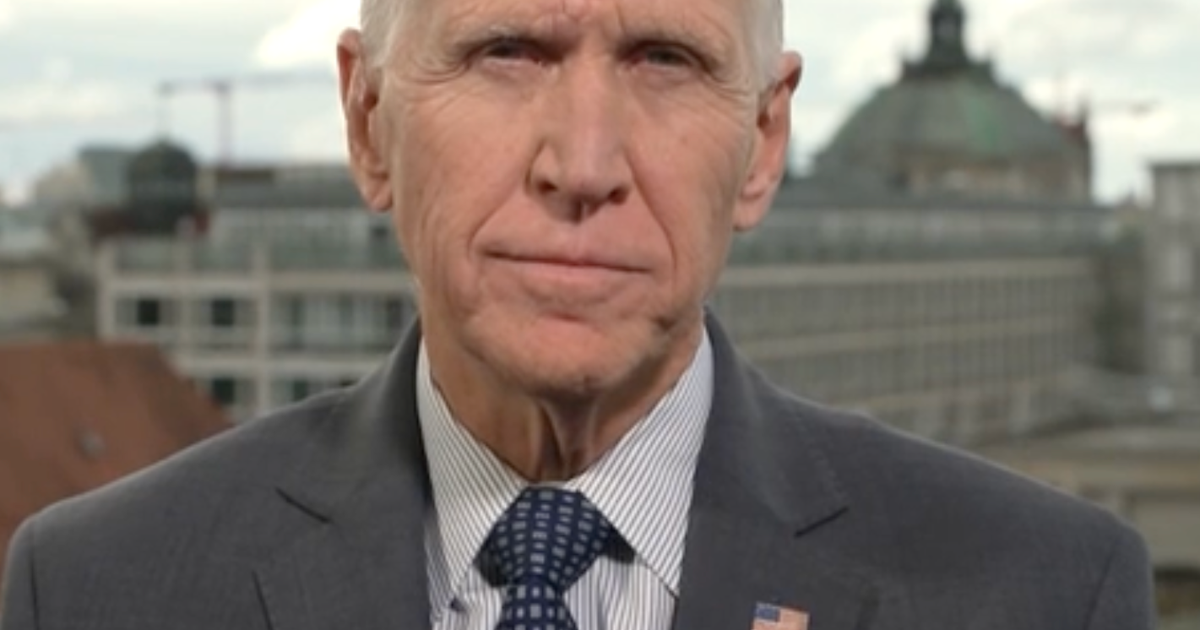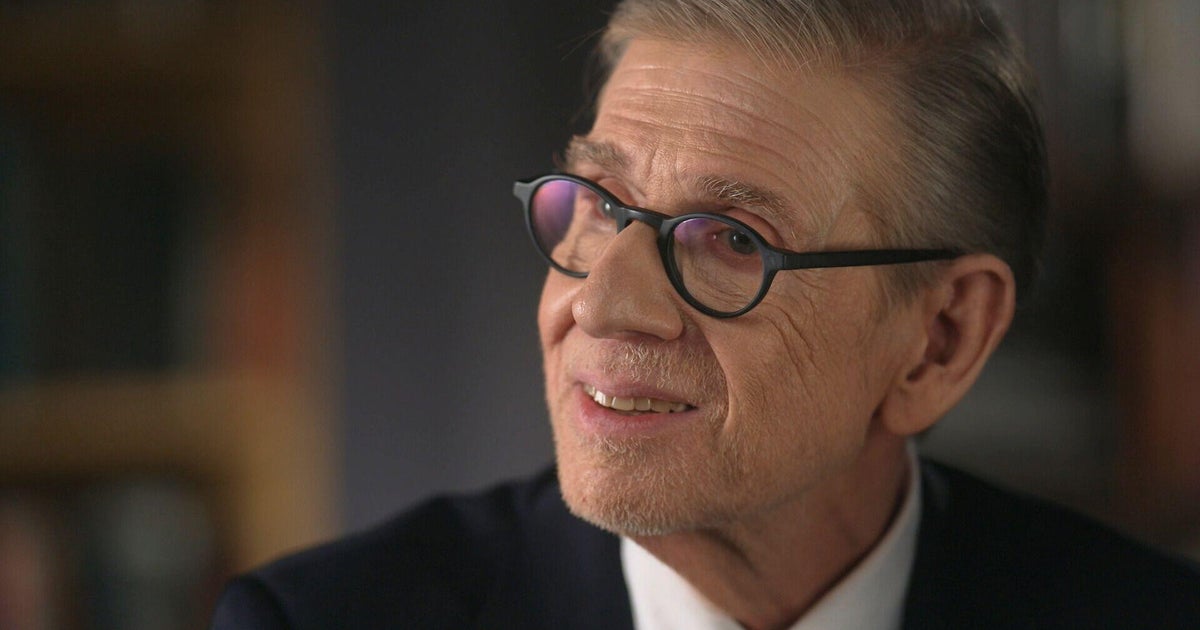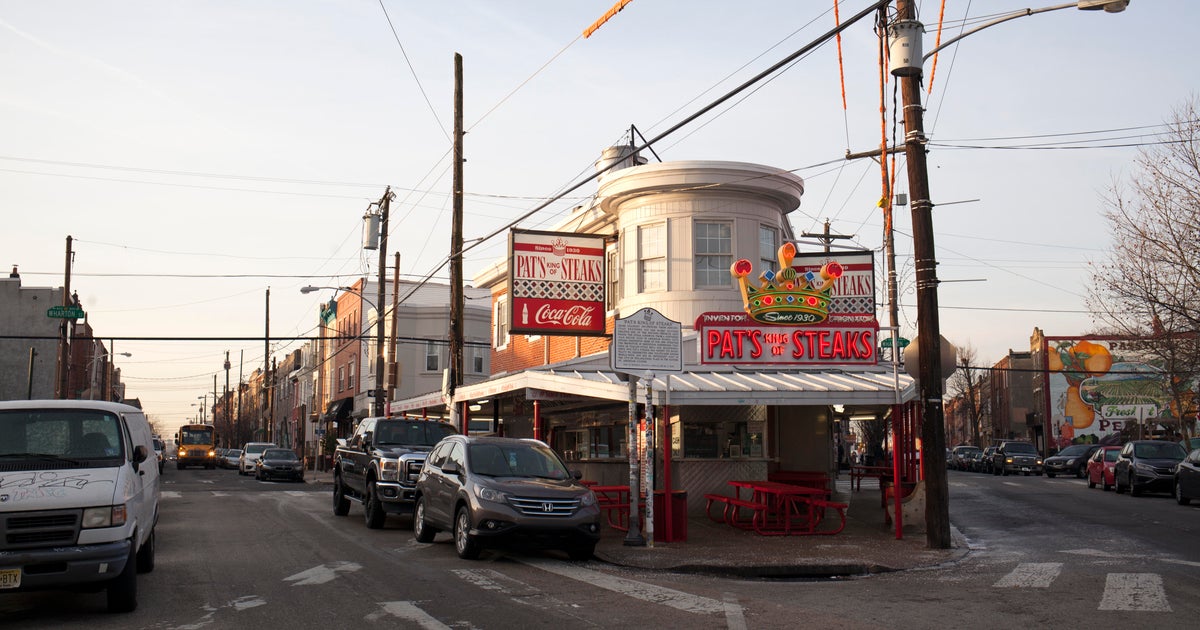Transcript: Scott Gottlieb discusses coronavirus on "Face the Nation," June 21, 2020
The following is a transcript of an interview with former FDA Commissioner Scott Gottlieb by CBS News' Margaret Brennan that aired Sunday, June 21, 2020, on "Face the Nation."
MARGARET BRENNAN: We turn now to former FDA commissioner Dr. Scott Gottlieb, who's in Westport, Connecticut, this morning. Good morning to you, Dr. Gottlieb.
DR. SCOTT GOTTLIEB: Good morning.
MARGARET BRENNAN: We heard that the number of COVID-19 cases has exceeded 30,000 a day for the first time in about seven weeks. What is happening?
DR. GOTTLIEB: Well, we're seeing a resurgence in the south, in the southeast. They never really got rid of their epidemics. Now we're seeing significant outbreaks on top of a background rate of spread that was quite high. As they reopened, that spread has continued to increase. And so, you know, a challenge that was facing some regions of the country now is facing every region in the country. And the- the worry is that they're going to tip over into exponential growth coming this week because the cases are building quite quickly in Texas, Florida, Alabama, South Carolina, North Carolina, Arizona. And the challenge with exponential growth is everything looks OK until suddenly it doesn't. And so this is something that has to be a concern of everyone that's been watching this.
MARGARET BRENNAN: When you say exponential growth, are you saying that hospitals are about to get overwhelmed in places like Arizona and Texas?
DR. GOTTLIEB: That's the concern. So if you look at places like Arizona, the hospitals now are getting pressed. Midweek, there was a report out of Arizona that about 40 percent of the hospital beds were filled with COVID patients. Texas and Florida still reporting a lot of capacity even though Florida doesn't report the total hospitalizations for COVID patients. But these things can mount very quickly, as we saw in New York. You're always when- when the epidemic is expanding, it's always worse than what you're measuring. And so there are a lot more cases in these states that are going to get turned over this coming week. Given the rate of growth that we've seen, we know that there's community spread now underway in states like Florida, Texas, California, for that matter, too, and Arizona. Those are big states that have a lot of cases they've been building. And so this is going to be hard to get under control. We're not going to want to shut down businesses again. We're not going to want to shut down the economy. So there's not many tools we can reach for. We can do case-based interventions, the tracking and the tracing of sick people to get people isolated. We can go towards universal masking, something that's been controversial and some of these states, but there's not much else you can do. And so there's no quick intervention that's going to bring this to an end.
MARGARET BRENNAN: In Arizona, it was just this week that the governor gave mayors the power to make masks mandatory. They're not doing that in Florida. They're not doing that in Texas. Is that a mistake?
DR. GOTTLIEB: Well, I think they're going to have to. I think it's a mistake that they're not doing. Now they're losing precious time. I think they're going to have to. The masking has become controversial. It shouldn't be. It's a simple intervention. It's a collective action we can all take to help protect our fellow citizens, but also protect ourselves and try to reopen the economy safely. I think some people see it as a sort of infringement on their liberty or as a way as- to cast some scorn on a public health establishment that's come in for some questions, because people blame the public health establishment for the shutdowns. They blame the public health establishment for some conflicting guidance. I think in other quarters it's been portrayed as something that, you know, Trump supporters don't want to wear masks. It's neither of those things. It's something that we can do collectively to try to reduce the spread. It's really all we have and it's not it's not a very robust tool at that. But it's a tool that we have and it's a tool that's been demonstrated to have an impact if everyone does it or if most people do it.
MARGARET BRENNAN: Well, health officials did give conflicting messages on wearing masks in the first place, but we now know--
DR. GOTTLIEB: That's right.
MARGARET BRENNAN: --from Dr. Fauci it's because they were afraid of shortages.
DR. GOTTLIEB: And also worried that by telling people they could wear masks, you're telling them they can go out. So at a time that they were telling people to stay at home, there was concern that telling them that if they wear masks, they're more safe would encourage people to go out. And so,--
MARGARET BRENNAN: Yeah.
DR. GOTTLIEB: --I think that could have been messaged appropriately. They didn't need to be concerned about that. We should've been recommending masks from the outset.
MARGARET BRENNAN: We heard from the secretary of Homeland Security earlier in the program, and he said the press and others only want to talk and focus on the increased case count and that testing is a good message. The president says testing is overrated. What is the bottom line, the science and the facts about where we are with this virus in America right now?
DR. GOTTLIEB: Well, testing- there's a high correlation between places that are doing more testing, more contact tracing and have decreased mobility and have better- a better picture right now. Some of the cases that we're collecting are because we're testing more. But the positivity rate is also going up in states like Texas where it's about eight percent, Florida about eight percent, Arizona almost 20 percent. We're seeing the positivity rates go up. That's a clear indication that there's now community spread underway. And this isn't just a function of testing more. So some of it is testing more. We're probably capturing right now somewhere between one in five to one in 10 infections. Before during the epidemic, we were probably measuring one in 10 to one in 20 infections. So we're capturing a higher percentage of the overall infections, but the infections are also going up. So this is an epidemic that's expanding in these states. And the challenge is there's not a clear endpoint. We're becoming more and more dependent upon a therapeutic intervention early in the fall to be our backstop because we're taking a lot of virus through this summer. We really shouldn't be where we are in June right now. It's not clear what's going to improve the picture in July and August if we're not going to start to- to impose additional mitigation, start closing bars and restaurants. And states aren't going to want to do that. They're going to be slow to do that. So these case counts are going to build.
MARGARET BRENNAN: And many of these states we're talking about are not doing those things you're recommending. I want to ask you, though, about what some of the businesses are doing, because it was businesses who kind of led the way in shutting down in the first place. Apple shuttered stores in Arizona, Florida, North Carolina, South Carolina due to outbreaks. Every team in Major League Baseball is going to shut their- their camps due to this. Are corporations going to have to lead the way this time as well?
DR. GOTTLIEB: Well corporations led the way last time, I think--
MARGARET BRENNAN: Is it on the business owner to shut- shut it down, in other words? Is the restaurant owner responsible for making that decision--
DR. GOTTLIEB: Yeah, I--
MARGARET BRENNAN: --and not the state? Not the mayor?
DR. GOTTLIEB: That's what happened last time. The states and the local school districts really forced the- the hand of policymakers on shutting down the economy. I think what you're going to see is businesses that are national in scope are going to close stores regionally. And that's what we saw with Apple. We saw- saw with another business today in Florida. I think school districts right now are contemplating how they reopen, and some of them might make decisions not to reopen what- looking at all these trends in these states. It's gonna be harder for them to lock into plans. I think they should try to reopen in the fall. But there's a lot of virus still in July and August it's going to be very hard for them to reopen these schools. So if we want to reopen the schools, we've got to get this under control. We might have to take a little bit of economic pain right now to get this under better control in these states to open up the opportunity to open schools in the fall, which is going to have a big economic benefit because parents can't go back to work in earnest unless the kids are in school.
MARGARET BRENNAN: Absolutely. Good point. Thank you very much, Dr. Gottlieb. Always good to talk to you. Be right back.



